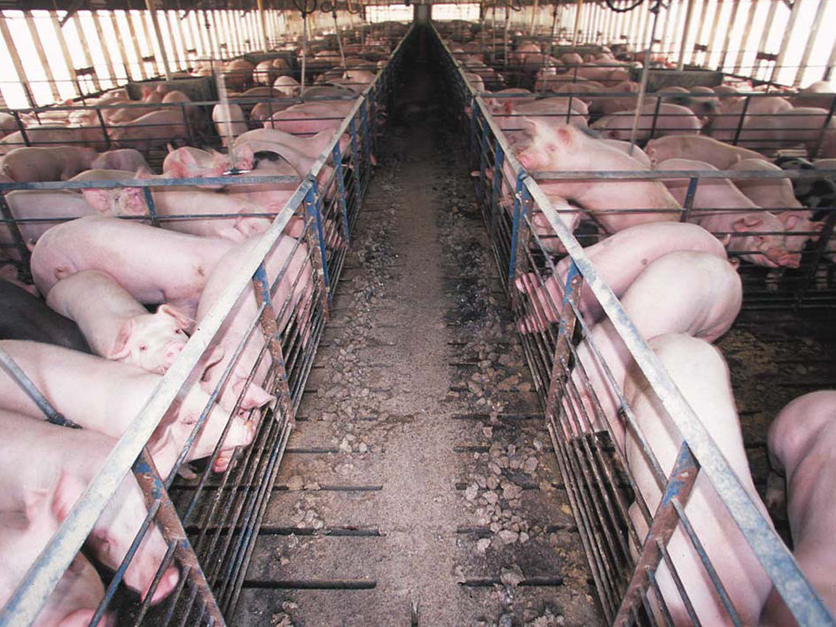Smithfield Foods has settled litigation over hog farms in North Carolina after an appeals court decision Thursday upheld a nuisance verdict against a company subsidiary.
“We have resolved these cases through a settlement that will take into account the divided decision of the court,” Smithfield Chief Administrative Officer Keira Lombardo said in a statement, but did not release financial details.
The appeals court decision upheld a jury verdict that the hog farm constituted a nuisance but remanded the issue of the amount of punitive damages to the district court.
The court found the introduction of financial information, such as the compensation of Smithfield executives, could have unfairly prejudiced the jury when it decided punitive damages, and remanded the case to the lower court for a rehearing on that issue. Smithfield, which was not a party in the case, owns Murphy-Brown, which had appealed the verdict and had contracted with the hog operation, Kinlaw Farms.
“To be quite clear — we do not disturb the district court’s decision to submit the availability of punitive damages to the jury or the jury’s determination that those damages are appropriate in this case,” the Fourth Circuit Court of Appeals said. “Rather, we are only remanding for a new calculation of those damages absent the parent company financial evidence that threatens significant prejudice without any relevance to the question of the appropriate amount of punitive damages to award.”
The lawyer for the 10 plaintiffs who received the awards, neighbors of the hog farm, had mentioned at trial that four Smithfield executives had made $245 million from 2010-2015, and also introduced evidence about the profits of Smithfield and its parent, the Chinese company WH Group Limited.
“A jury exposed to the high-dollar values of [Murphy-Brown’s] parent companies and the [corporate] parents’ executive compensation could understandably — but inappropriately — apply that information when it came time to decide how much money would be required for [Murphy-Brown] to ‘feel’ the effect of the damages award,” the court said in its opinion.
In its 2018 verdict, the jury awarded each of the plaintiffs $75,000 in compensatory damages as well as $5 million each in punitive damages — later reduced to $2.5 million total because of a state cap on such awards.
Otherwise, the court rejected the arguments of Murphy-Brown on appeal, finding the plaintiffs’ expert was well-qualified “to opine on odor traceability, waste management measures, and their testability,” while the company’s expert was not similarly qualified to testify that the odors did not rise to the level of a nuisance.
Interested in more coverage and insights? Receive a free month of Agri-Pulse.
The court also said a state law passed three years after the case was filed did not bar the plaintiffs from seeking compensation, or that the statute of limitations had passed.
The court agreed the hog operation constituted a nuisance.
“Here, maintenance of odiferous, noisy, and pest-ridden farm operations resulted in repeated — i.e., recurrent — invasions” of the plaintiffs’ properties, Circuit Judge Stephanie Thacker wrote. “The nuisance was not the solitary act of building a lagoon-and-sprayfield hog farm in the past but was instead the practical operation of that farm in a manner inconsistent with its neighbors’ use and enjoyment of their own properties.”
Concurring, Circuit Judge J. Harvie Wilkinson echoed comments he made at oral argument, writing “it is past time to acknowledge the full harms that the unreformed practices of hog farming are inflicting.”
He acknowledged the importance of the industry to North Carolina, citing an American Farm Bureau Federation brief: “Hog farming is central to economic life in North Carolina. It supports 46,000 much-needed, mostly low-skill jobs and accounts for approximately $11 billion of the state’s annual economic productivity.”
However, he cited “appalling” conditions at Kinlaw Farms, the contract grower, and said both the farm and Murphy-Brown had failed to recognize that “treating animals better will benefit humans. What was neglected is that animal welfare and human welfare, far from advancing at cross-purposes, are actually integrally connected. The decades-long transition to concentrated animal feeding operations lays bare this connection, and the consequences of its breach, with startling clarity.”
The decision also carried a partial dissent from Circuit Judge G. Steven Agee, who said the entire trial should be redone because of the admission of financial evidence about Smithfield and WH Group. “The prejudice from this error is so profound that a full new trial is necessary,” Agee said.
For more news, go to www.Agri-Pulse.com.


